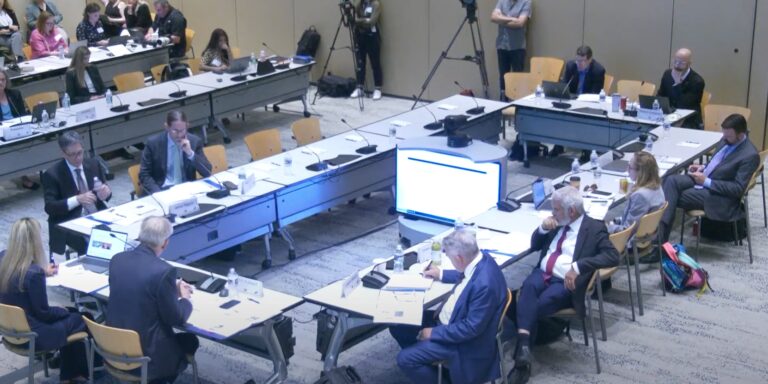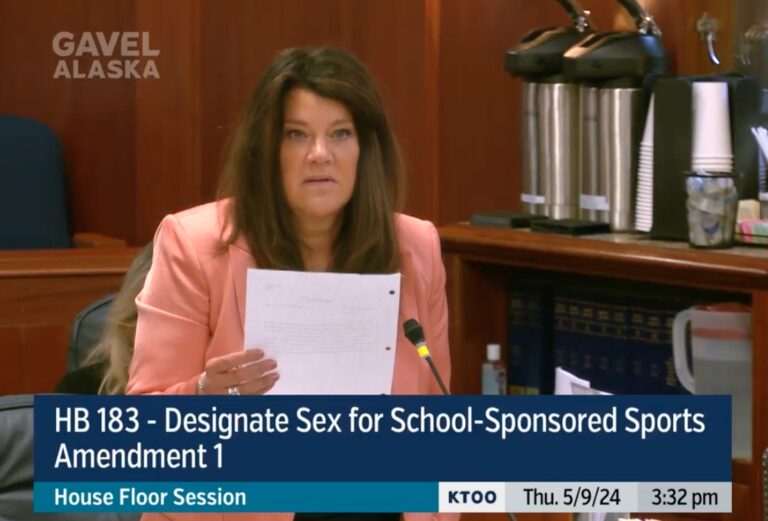In a letter sent Monday to all 50 governors, the mayor of Washington, DC, and the governor of Puerto Rico, US Transportation Secretary Sean Duffy called for the removal of “politically charged and distracting displays” on public roads, including rainbow-painted crosswalks and street slogans such as “Black Lives Matter.”
The directive, issued July 1 as part of the Federal Highway Administration’s SAFE ROADS initiative, frames the call for removal as a matter of public safety. Duffy pointed to 39,345 traffic fatalities in 2024 as justification for eliminating what the department terms nonstandard and potentially distracting markings from arterial roads and intersections.
“Roads are for safety, not political messages or artwork. Today I am calling on governors in every state to ensure that roadways, intersections, and crosswalks are kept free of distractions,” Duffy wrote. “Far too many Americans die each year to traffic fatalities to take our eye off the ball. USDOT stands ready to help communities across the country make their roads safer and easier to navigate.”
The SAFE ROADS Program Goals include:
- Get back to basics – use data-driven decisions and target safety and mobility investments.
- Empower states and local governments to simplify and improve roadway environments.
- Make roads safer and easier to navigate for pedestrians, vehicle operators, and automated vehicles.
He asked states and territories to submit within 60 days a list of intersections and roadway segments where these displays exist, prioritizing areas with elevated crash rates. The letter set a goal of addressing those safety concerns by the end of Fiscal Year 2026.
The request has sparked a nationwide debate. Supporters argue that the move restores uniformity and prioritizes safety on public streets. Critics, however, say the directive amounts to federal overreach and targets displays that symbolize inclusion and civil rights.
Some municipalities have signaled resistance. Atlanta city officials indicated this week that the federal government does not have jurisdiction over most city streets and has limited authority to compel changes to non-federally funded infrastructure.
The painting of crosswalks with rainbows has led to some drivers doing burnouts on the paint. This has resulted in new ordinances that crack down on that behavior. In Kirkland, Wash., drivers have been charged with malicious mischief. In Spokane, three teens riding electric scooters were charged with felonies after leaving skid marks on Spokane’s Pride crosswalk. The city had also experienced earlier vandalism and even arson attempts. In Canada, one jurisdiction has treated these skid-mark incidences as hate crimes.
In Juneau, guerrilla painters painted rainbow colors on a crosswalk on Front Street in 2016, and the city later sanctioned the rainbow crosswalk and now repaints it annually, with paint and labor paid for by the Juneau Arts and Humanities Council. It is occasionally subjected to skid marks. There have been unauthorized guerrilla paintings of rainbow crosswalk at 7th and Gold St., which the city has repainted white. The Juneau crosswalk is not a federal highway and is likely unaffected by this advisory letter or subsequent federal funding decisions that could adversely impact states and cities.
The SAFE ROADS program, launched earlier this year by the Department of Transportation, aims to reduce traffic fatalities through infrastructure improvements, enhanced enforcement strategies, and stricter adherence to the Manual on Uniform Traffic Control Devices, which sets the standards for road markings and signage nationwide.
While the Department’s letter does not carry the force of law, it signals a tightening stance on what the federal government considers visual distractions in public right-of-ways. It remains to be seen how states and localities will respond, or whether legal challenges will arise in defense of political messages on the road surface.









